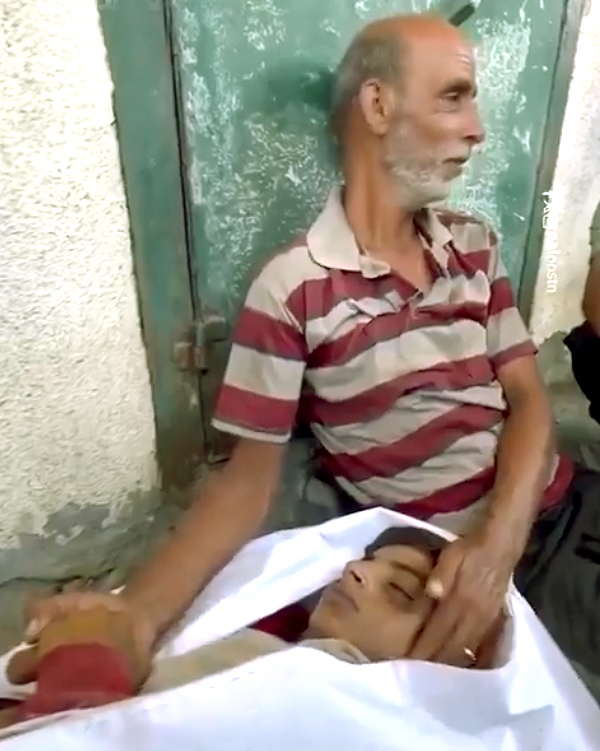
AT least 21 people have been killed, including 15 from a stampede and suffocation due to tear gas being fired at Palestinians seeking food, at one of the GHF distribution hubs in Khan Younis, Gaza’s Health Ministry said in a statement yesterday.
‘For the first time, deaths have been recorded due to suffocation and the intense stampede of citizens at aid distribution centres,’ the ministry said.
It accused the Israeli army and the US of ‘deliberately’ committing ‘massacres against the starving people in a systematic manner’.
The ministry issued the statement after the US- and Israel-backed GHF (Gaza Humanitarian Foundation) acknowledged that 20 people had been killed yesterday morning at its distribution point in Khan Younis, accusing Hamas-affiliated elements of fomenting the unrest.
Since it began distributing aid in late May, the GHF has been engulfed in criticism for setting up sites that the UN describes as ‘death traps’.
More than 870 Palestinians have been killed near or at its distribution sites.
At least 43 Palestinians, including 21 aid seekers, were killed across Gaza between dawn and noon, according to medical sources.
Gaza’s Health Ministry said 15 of the aid seekers died from a stampede and suffocation due to tear gas being fired at Palestinians seeking food at a GHF food distribution hub in Khan Younis in southern Gaza.
Earlier, an Israeli attack on a camp of displaced people in al-Mawasi killed nine people.
Juliette Touma, Director of Communications and Media at the United Nations Relief and Works Agency for Palestine Refugees (UNRWA), affirmed that the current mechanism for distributing relief aid in Gaza ‘is not working at all’, calling for a return to the previous system that allowed hundreds of trucks carrying food and essential supplies to enter daily.
Touma stressed that UNRWA continues to provide vital services to Palestinians in Gaza and the West Bank despite Israeli obstructions, including blocking entry visas for international staff. She said that around 6,000 trucks are currently stuck at Gaza’s borders.
Touma also noted that today’s situation in Gaza is incomparable to what it was before the war, destruction is widespread, security is absent, and residents’ needs far exceed just food.
When asked about claims that UNRWA ceased operations in Gaza, Touma emphasised that UNRWA never stopped working there despite all circumstances, with over 10,000 Palestinian staff continuing to provide services.
Touma, who previously worked with civil society organisations in culture, arts, and music, said UNRWA health teams in Gaza are offering around 15,000 consultations daily, while hundreds of thousands visit UNRWA clinics in the West Bank.